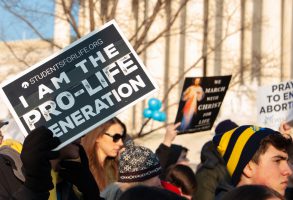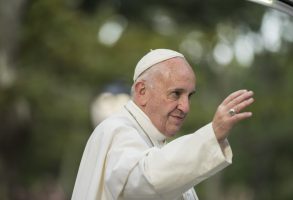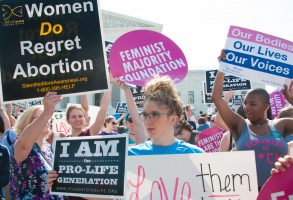Carter Snead
Fellow
Carter Snead, a Fellow at the Ethics and Public Policy Center, is an internationally recognized expert in the field of law and bioethics. His research explores issues relating to neuroethics, enhancement, human embryo research, assisted reproduction, abortion, and end-of-life decision-making.
Carter Snead, a Fellow at the Ethics and Public Policy Center, is an internationally recognized expert in the field of law and bioethics. His research explores issues relating to neuroethics, enhancement, human embryo research, assisted reproduction, abortion, and end-of-life decision-making.
He is the author of What It Means to be Human: The Case for the Body in Public Bioethics (Harvard University Press, October 2020), which was named by the Wall Street Journal as one of the “Ten Best Books of 2020;” in his review for the same paper, Yuval Levin called it “among the most important works of moral philosophy produced so far in this century.” In May of 2022, it was listed in The New York Times as one of “Ten Books to Understand the Abortion Debate in the United States.” Snead and the book received the 2021 “Expanded Reason Award” (given by Francisco de Vitoria University (Madrid) and the Joseph Ratzinger/Benedict XVI Vatican Foundation), and has been reviewed and discussed in such publications as the Wall Street Journal, The New York Times, New York Post, USA Today, Bloomberg Opinion, Il Foglio, Christian Post, The Review of Metaphysics, American Journal of Jurisprudence, America Magazine, First Things, The New Atlantis, Plough, The Boston Pilot, Public Discourse, Practical Ethics (Oxford University), Legal Ethics Forum, Church Life Journal, Law & Liberty, Angelus News, Mirror of Justice, Crux, Mars Hill Audio Journal, Mercator Net, BioEdge, Front Porch Republic, The National Catholic Register, The American Conservative, Fare Forward, Catholic World Report, The Gospel Coalition, Chronicles: A Magazine of American Culture, The Human Life Review, Eikon, Salvo, The Catholic Thing, The Daily Signal, and National Review.
Additionally, he has written more than 70 journal articles, book chapters, and essays. His scholarly works appear in such publications as the New York University Law Review, the Harvard Law Review Forum, the Vanderbilt Law Review, Constitutional Commentary, Quaderni Costituzionali (Italy’s premier journal of constitutional law), the Yale Journal of Health Policy, Law and Ethics, the Journal of Medicine and Philosophy, and Political Science Quarterly. He is also the editor of two book series for the University of Notre Dame Press – “Catholic Ideas for a Secular World” and “Notre Dame Studies in Bioethics and Medical Ethics.” Snead teaches Law & Bioethics, Health Law, Torts, and Constitutional Criminal Procedure.
In addition to his scholarship and teaching, Snead has provided advice on the legal and public policy dimensions of bioethical questions to officials in all three branches of the U.S. government, and in several intergovernmental fora. Prior to joining the law faculty at Notre Dame, Snead served as general counsel to The President’s Council on Bioethics (Chaired by Dr. Leon R. Kass), where he was the primary drafter of the 2004 report, “Reproduction and Responsibility: The Regulation of New Biotechnologies.” He has testified in the U.S. House of Representatives on regulatory questions concerning RU-486 (the abortion pill). In 2013, he testified in the Texas state legislature on the constitutionality of a proposed fetal pain bill. Snead led the U.S. government delegation to UNESCO and served as its chief negotiator for the Universal Declaration on Bioethics and Human Rights, adopted in October 2005. He served as the U.S. government’s Permanent Observer to the Council of Europe’s Steering Committee on Bioethics, where he assisted in its efforts to elaborate international instruments and standards for the ethical governance of science and medicine. In conjunction with the American Association for the Advancement of Science, he has lectured to state and federal judges on the uses of neuroimaging in the courtroom. He regularly serves as an expert witness on bioethical matters before federal courts.
In 2008, he was appointed by the director-general of UNESCO to a four-year term on the International Bioethics Committee, a 36-member body of independent experts that advises member states on bioethics, law, and public policy. The IBC is the only bioethics commission in the world with a global mandate. In 2016, he was appointed to the Pontifical Academy for Life, the principal bioethics advisory body to Pope Francis. He is also an elected fellow of The Hastings Center, the oldest independent bioethics research institute in the world.
Snead received his J.D., magna cum laude, from Georgetown University, where he was elected to the Order of the Coif, and his bachelor of arts from St. John’s College in Annapolis, Maryland. He clerked for Judge Paul J. Kelly Jr. of the U.S. Court of Appeals for the Tenth Circuit.
Carter Snead, a Fellow at the Ethics and Public Policy Center, is an internationally recognized expert in the field of law and bioethics. His research explores issues relating to neuroethics, enhancement, human embryo research, assisted reproduction, abortion, and end-of-life decision-making.
Could the Fate of Society Depend on How We Think About Bodies?
Carter Snead

In an interview with Angelus, EPPC Fellow Carter Snead discusses his new book, What It Means to be Human: The Case for the Body in Public Bioethics, and calls for a new “anthropology” and better laws that would lead to greater compassion for the weak and greater respect for the sanctity and dignity of human life.
Articles
Angelus / February 9, 2021
The Way Forward After June Medical
Carter Snead

Now is the time to get back on our feet and return to the work of building a civilization of love, radical hospitality, and legal protection for unborn children and their mothers.
Articles
First Things / July 4, 2020
The Supreme Court Should Protect Unborn Children with Down Syndrome
Carter Snead

Regardless of our nation’s polarized views on the policy and politics of abortion, it is clear that our Constitution does not include a right to abort children merely because of disfavored characteristics.
Articles
Public Discourse / January 2, 2019
The Alfie Evans Case Is Straight Out of a Dystopia
Carter Snead

What began with a hospital’s deadly policy against a child with apparently permanent disabilities ended with a shocking totalitarian intervention by the state, annihilating his parents’ rights in order to ensure Alfie Evans’s demise.
Articles
CNN / May 2, 2018
Why the Pope is Fighting for Charlie Gard
Carter Snead

Once again, Pope Francis is offering a powerful, profound and much-needed lesson to the entire world about how to love unconditionally our brothers and sisters on the peripheries and the grave perils of what he calls a “throwaway culture” that casts aside the weak and defenseless.
Articles
CNN / July 14, 2017
For SCOTUS, a New Era of Judicial Interference
Carter Snead

The Supreme Court’s decision in Whole Woman’s Health v. Hellerstedt marks a dramatic escalation in the controversial jurisprudence of abortion.
Articles
CNN.com / June 28, 2016
It’s Time to Defund Planned Parenthood
Carter Snead
No amount of attacking the messenger or hair-splitting legal argument can change the fact that Planned Parenthood’s own medical directors have unwittingly offered rare and much-needed clarity about the nature of the business that Planned Parenthood has chosen, and shared (if inadvertently) the truth about precisely whose lives are destroyed as a result.
Articles
Fox News / July 31, 2015
Once More Unto the Breach
Carter Snead
Consistent with its ruling in favor of the federal partial-birth abortion law, the Supreme Court should rule that an Oklahoma law that prohibits the non-FDA-approved use of abortion-inducing drugs is valid.
Articles
SCOTUS Blog / September 16, 2013
The Constitutionality of Protecting Unborn Babies at 20 Weeks
Carter Snead
State legislation that would generally prohibit abortion of unborn babies who are capable of experiencing pain is constitutionally permissible.
Articles
Public Discourse / July 9, 2013